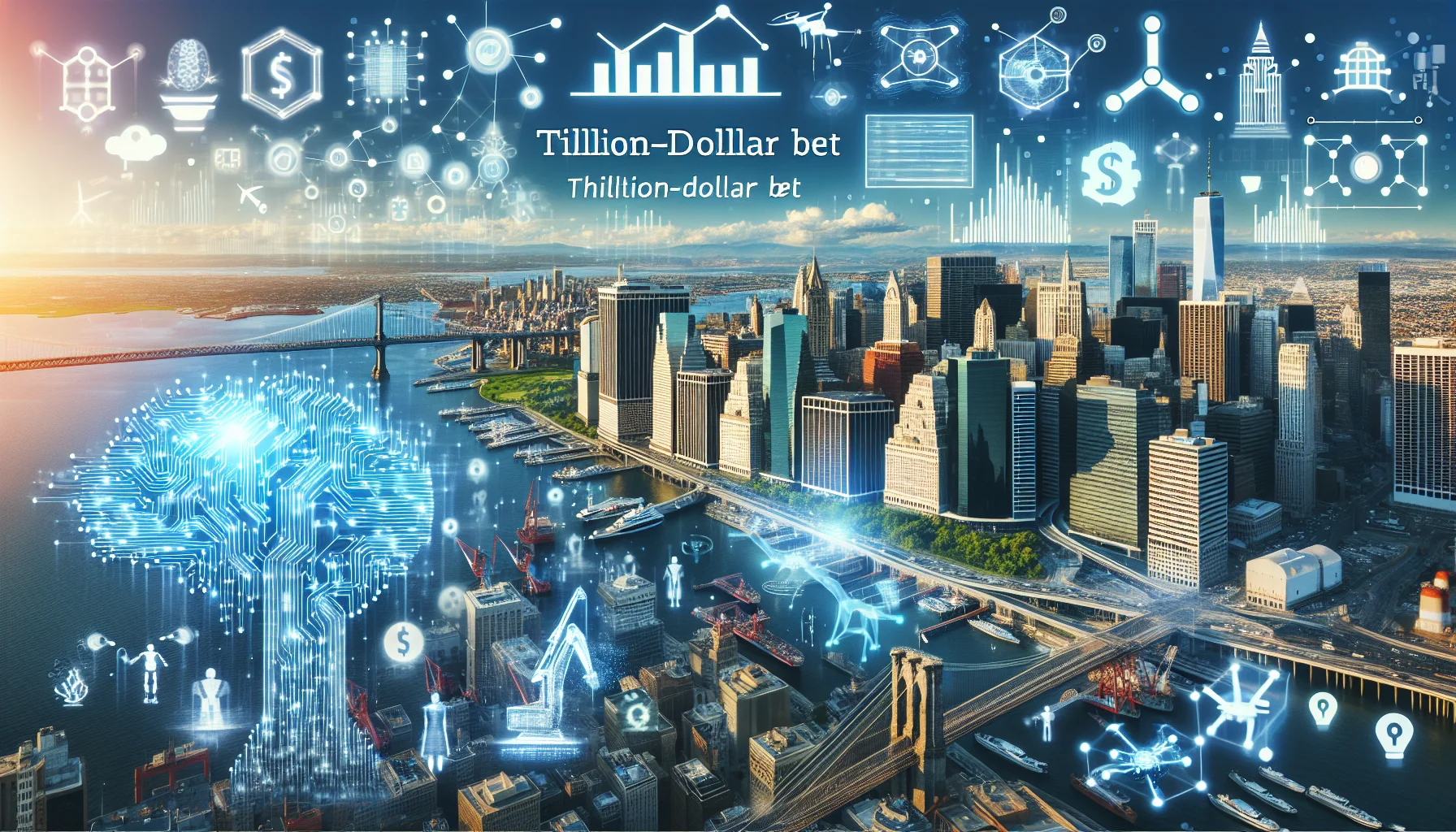
All In: Why the U.S. Economy is Making a Trillion-Dollar Bet on AI
You’ve seen the headlines. You’ve heard the buzz in boardrooms, coffee shops, and developer forums. Artificial intelligence isn’t just a trending topic anymore; it’s the headline act, the main event, the technology that’s supposed to change everything. But behind the flashy demos and mind-bending chatbots, a much bigger story is unfolding. The United States is quietly, and not-so-quietly, pushing all its chips to the center of the table, making one of the biggest economic bets in its history. The bet? That AI is the silver bullet for… well, pretty much everything.
From staggering national debt to slowing productivity and an aging workforce, the U.S. economy is facing a perfect storm of challenges. For years, economists and policymakers have been searching for a miracle. Now, it seems they’ve found one, and it’s powered by machine learning algorithms and massive datasets. But is AI the economic savior we’ve been waiting for, or are we just witnessing the inflation of a spectacular, trillion-dollar bubble?
Let’s break down why this high-stakes gamble is happening now and what it means for all of us—from developers and entrepreneurs to the general public.
The Economic Headwinds: Why We Need a Hero
To understand why America is going all-in on AI, you first need to understand the problems it’s trying to solve. For decades, the engine of American prosperity has been humming along, but recently, it’s started to sputter. Here are the core issues:
- The Productivity Puzzle: For an economy to grow sustainably, its workers need to become more productive—producing more value per hour worked. For the better part of the last two decades, that growth has been disappointingly slow. The digital revolution promised a boom, but the numbers haven’t fully reflected it.
- Demographic Drag: The American population is getting older. As the massive Baby Boomer generation retires, there are fewer workers to support a growing number of retirees. This puts immense strain on social systems and slows down economic dynamism.
- Debt Mountain: The U.S. national debt is at a historic high. Servicing this debt requires a significant portion of the national budget, crowding out other investments in infrastructure, education, and research.
- Geopolitical Tensions: The shifting global landscape, particularly the strategic competition with China, has added another layer of economic pressure, forcing a re-evaluation of supply chains and technological leadership.
Faced with this daunting list, the classic economic levers—like cutting interest rates or government spending—seem inadequate. We need something transformative. We need a game-changer. Enter AI.
AI: The Promised Productivity Miracle
The core argument for the AI bet is simple: automation and augmentation on a scale we’ve never seen before. The hope is that artificial intelligence will trigger a productivity boom that echoes the industrial revolution or the dawn of the internet, making the economy so much more efficient that it blows past the headwinds.
This isn’t just a far-off dream; we’re already seeing it happen. Look at the world of software development. Tools like GitHub Copilot, powered by sophisticated AI models, are changing the game for programming. They act as super-powered assistants, writing boilerplate code, suggesting solutions, and catching errors in real-time. This allows developers to focus on higher-level problem-solving and innovation, dramatically accelerating project timelines.
But it goes far beyond code. The revolution is being delivered through the cloud via accessible SaaS (Software as a Service) platforms, putting incredible power into the hands of startups and established companies alike. Consider the impact on other sectors:
- Healthcare: AI is accelerating drug discovery, personalizing treatment plans, and analyzing medical images with a speed and accuracy that can surpass human experts.
- Finance: Algorithmic trading, fraud detection, and risk assessment are becoming smarter and faster, while AI-powered advisors are democratizing financial planning.
- Cybersecurity: As threats become more sophisticated, AI is becoming an essential tool for identifying and neutralizing attacks in real-time before they can cause catastrophic damage.
- Logistics: From optimizing delivery routes to managing warehouse inventory, AI is streamlining the complex supply chains that power our lives.
Is This Just the Dot-Com Bubble 2.0?
A soaring stock market fueled by a new technology? Massive venture capital investments in unproven startups? It’s easy to see parallels to the dot-com bubble of the late 1990s, and it’s a comparison worth making. Many of those dot-com darlings went bust in spectacular fashion, wiping out trillions in investor wealth.
However, there are fundamental differences this time around that suggest the AI boom might have stronger legs.


